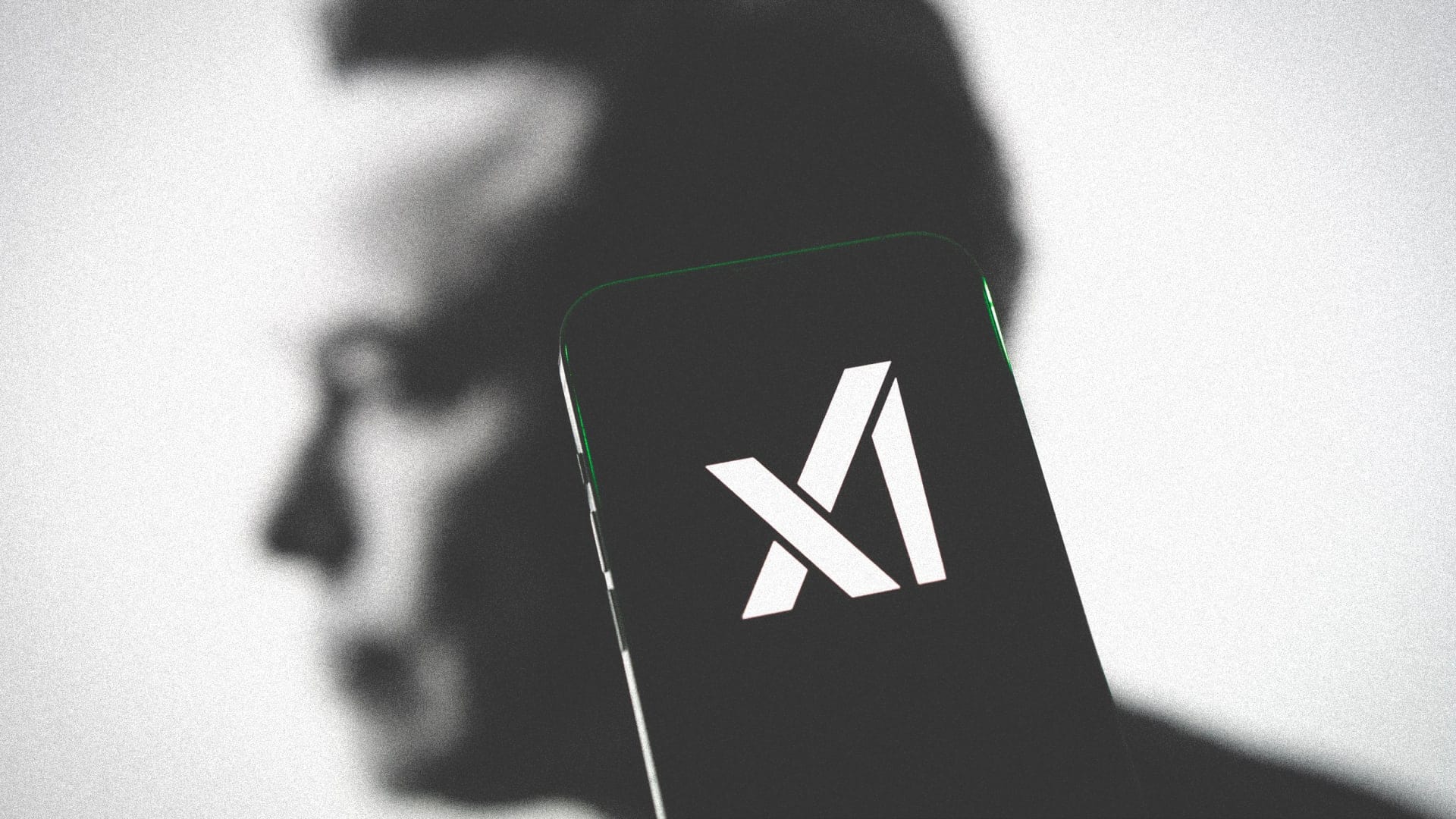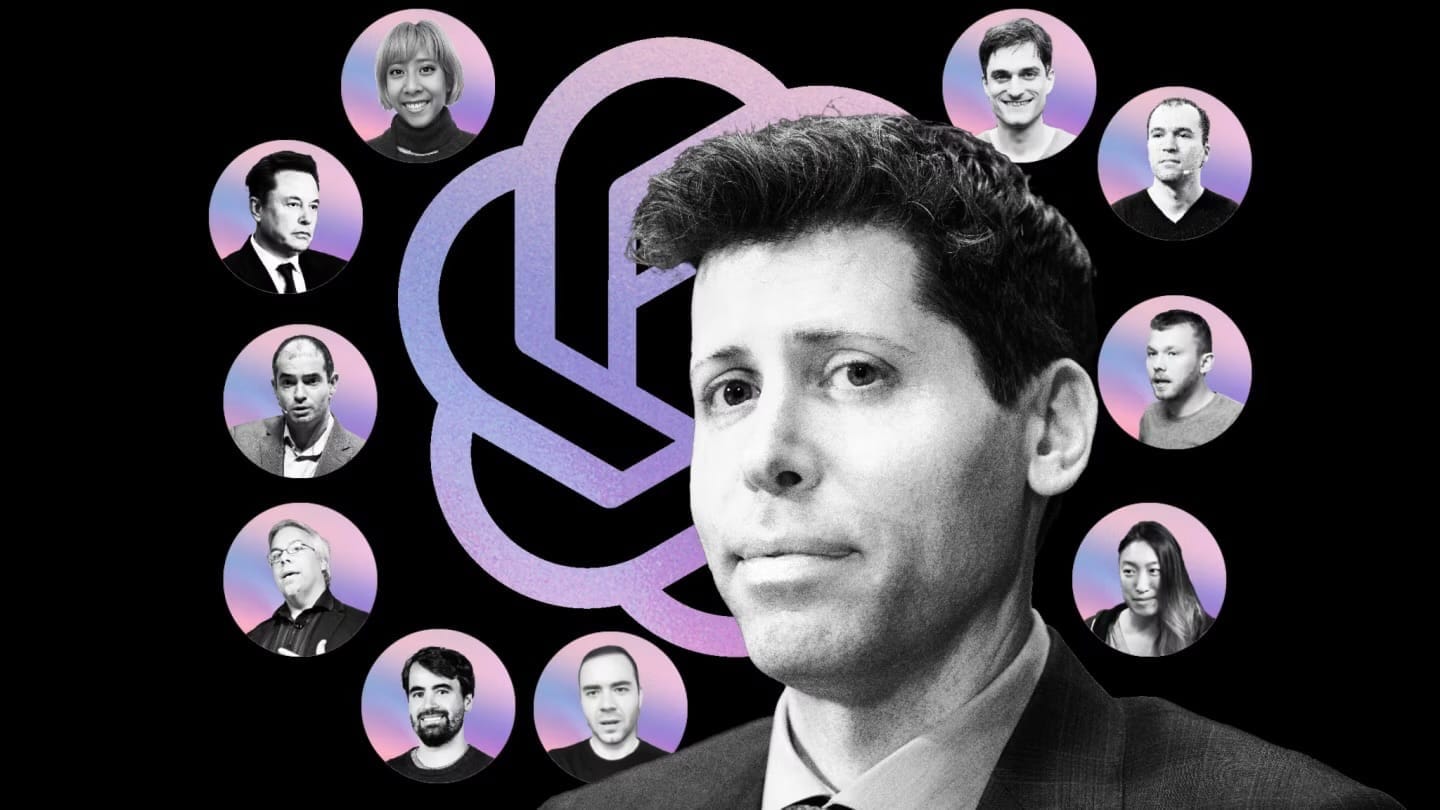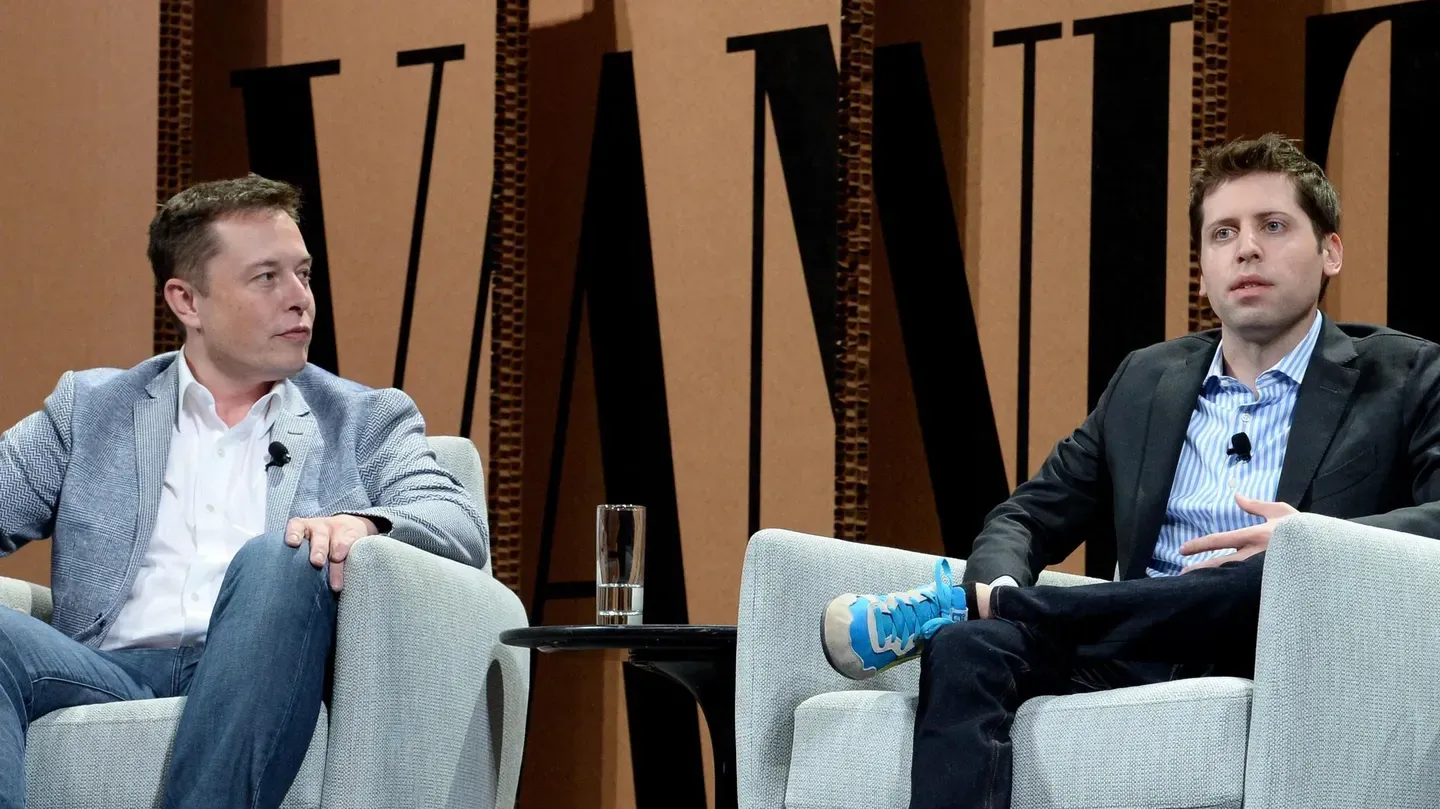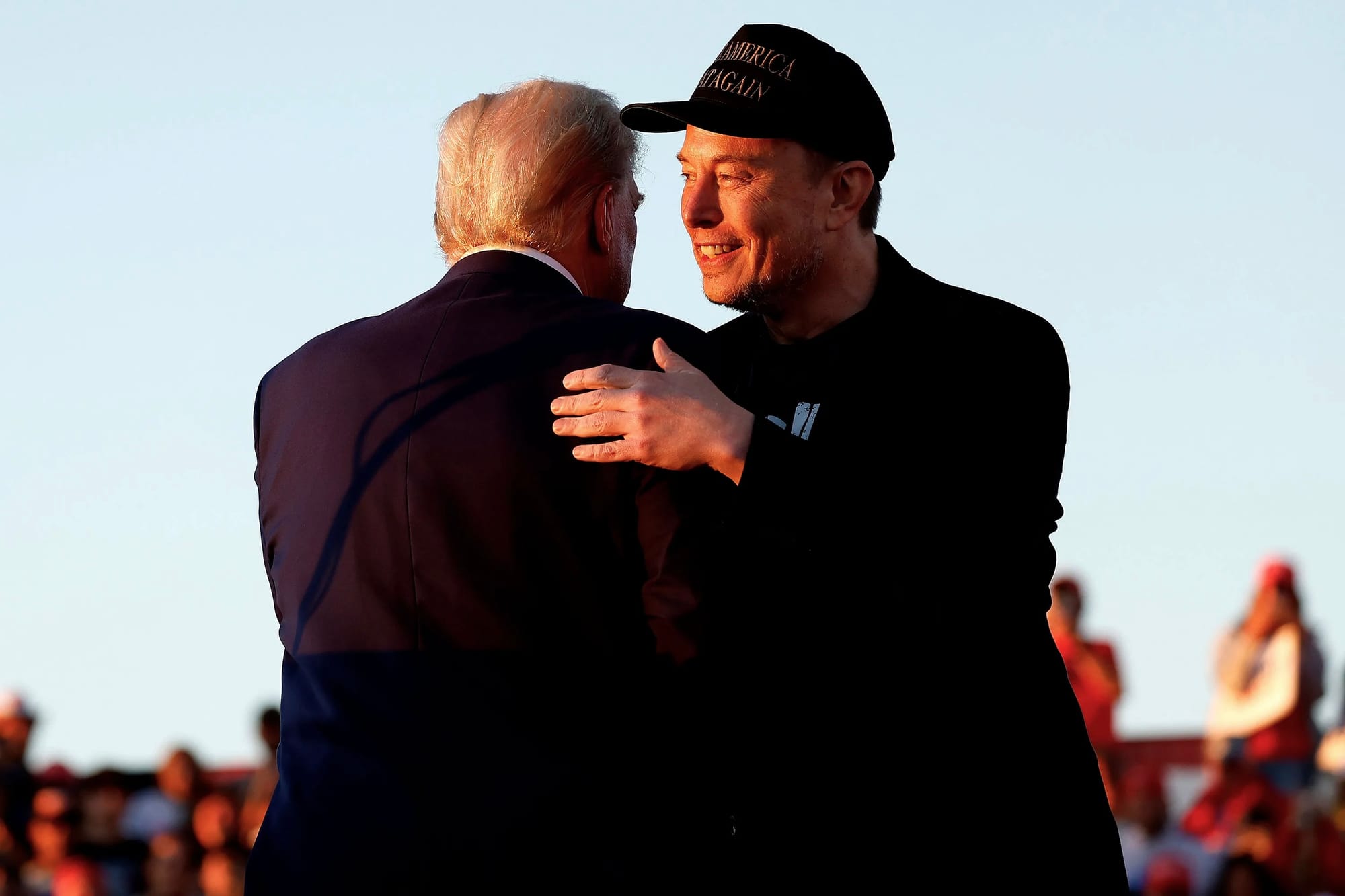xAI: A story of turning tables and a tumultuous quest for virtue.

Editor’s note: It is important to preface this article with a disclaimer that the focus here lies not on the specifics of AI models, or the technical capabilities of AI in general; I am by all metrics unqualified to meaningfully contribute to that discussion. More so, the aim is to shine light on some general dynamics in the AI market, present to you a player you might want to keep your eye out for, explain how the new U.S. administration might lend them a helping had in summoning the crown in generative AI development, and what this means for the development of the regulatory space for American-made AI. Best regards, Nikita
ChatGPT and its parent company OpenAI have become household names as a byproduct of the AI revolution. The rise of chatbots has been extensively documented, has left governments scrambling for regulation, induced fear of unemployment, and lifted chatgpt.com to become the internet’s 8th most visited website (- the most visited, if you exclude the big social media outlets and Wikipedia.) OpenAI’s meteoric rise, however, comes with its concerns. Ask a passerby on the street what the second-most used AI chatbot is, and you will find them struggling to answer. Our understanding and fears of AI’s capabilities combined with general dependence on one company have raised concerns about the de facto monopolist’s ambitions. However, lurking in the background is a potential disruptor emerging from the same roots as OpenAI, seeking to enforce their own AI playbook. Enter: xAI.
The name may sound as if it were AI-generated itself, though the letter “X”, particularly, has come to be associated with a prominent individual over the past years. Elon Musk’s purchase of Twitter, and its renaming to “X” has been among the most disruptive acquisitions of the decade, and sure enough, xAI’s roots too lay at the porch of the world’s richest man. For those in the know, this is not Musk’s first foray into AI, as he was among the founders of OpenAI back in 2015. To understand xAI’s mission, we must understand the history that connects it and its founder to the industry giant. To understand the firm’s potential, we must look ahead, and factor in macroeconomics, and perhaps crucially, the role of the newly elected U.S. president in shaping the future of the AI landscape. This is the story of xAI.

In the mid-2010s the concept of artificial intelligence was experiencing a renaissance. Visionaries across the world debated its potential to revolutionize society while grappling with the profound risks it posed. Elon Musk — a tech entrepreneur known for audacious ambitions—joined forces with Sam Altman, Greg Brockman, Ilya Sutskever, and others to found OpenAI in December 2015. Their mission was bold yet noble: ensure that artificial general intelligence would benefit all of humanity.
OpenAI began with a set of guiding principles grounded in collaboration, transparency, and safety. The team believed that AI was too powerful to be controlled by a single entity. They adopted a nonprofit structure, and made a commitment to open-source development aiming to democratize access to AI research and prevent a concentration of power in corporate or government hands. Musk, a staunch advocate of AI safety, was particularly concerned about the existential risks posed by AI. He famously likened unregulated AI development to “summoning the demon”, during a talk at the MIT Aeronautics Centennial Symposium in 2014. OpenAI’s commitment to ensuring global access to safe AI resonated with Musk’s fears of a dystopian future where AI might spiral out of control.
As OpenAI grew, so did the complexities of its mission. By 2018, internal disagreements began to emerge about the best approach to achieve the organization’s goals. Musk, whose concerns about safety remained paramount, reportedly clashed with other leaders, including Altman and Brockman, over the pace and transparency of OpenAI’s development. OpenAI was amidst a transition from its sheltered reality of an idealistic organization striving for world peace to a fully functional company required to generate revenue.
A turning point came when OpenAI decided to pursue cutting-edge research that demanded significant computational resources. The immense cost of such research began to strain the nonprofit model. In 2019, OpenAI transitioned into a “capped profit” company, aiming to attract investors while limiting their returns to ensure alignment with the organization’s altruistic goals. While this shift was seen as pragmatic by some, it was viewed by Musk as a departure from OpenAI’s founding ethos. Much later, in 2023, he would tweet:
“OpenAI was created as an open-source (which is why I named it ‘Open’ AI), non-profit company to serve as a counterweight to Google, but now it has become a closed-source, maximum-profit company effectively controlled by Microsoft. Not what I intended at all.” (@elonmusk, Feb. 17, 2023)
Around this time in 2019, Musk stepped down from OpenAI’s board, citing potential conflicts of interest with his work at Tesla’s AI division. However, the rift ran deeper. Musk grew increasingly skeptical of OpenAI’s ability to prioritize safety over the race for AI dominance.

By 2023, OpenAI’s advancements had made it a leader in the AI field, particularly with the release of its large and widely accessible language models like GPT-4. While these breakthroughs were widely celebrated, critics — Musk among them — argued that OpenAI was no longer adhering to its original mission. Musk criticized OpenAI by suggesting that it was contributing to the very risks it had been founded to mitigate.
Determined to realign AI development with safety-focused principles, Musk launched xAI in July 2023. Positioned as an alternative to OpenAI, xAI’s mission was to “understand the true nature of the universe” while prioritizing transparency and safety. Musk framed xAI as a response to the perceived ethical drift of OpenAI, vowing to avoid profit-driven compromises and maintain a strong focus on preventing AI from becoming a threat to humanity.
Elon’s sentiment found resonance in some, while encountering overwhelming critique in others. Among the more prominent contrarians is Silicon Valley entrepreneur and philosopher Naval Ravikant, arguing, during his appearance on the Joe Rogan podcast in 2019, that: “Excessive restrictions on AI are non-solutions to a non-problem. It’s like worrying about overpopulation on Mars before we’ve even set foot on the planet”, with obvious reference to Musk’s long-standing ambition to enable space travel to Mars.
Another widely acclaimed critique comes from the co-founder of one of Silicon Valley’s largest venture capital funds, Andreessen-Horowitz, known colloquially as a16z. Mark Andreessen, in his 2023 essay “Why AI Will Save The World”, postulates that regulation against AI development is equivalent to the urge to: “stop progress, freeze the world as it is, ... The real danger is not letting AI do its job to make us more productive and improve our lives.” Andreessen goes on to critique governmental regulation as a means for incumbents to cement their power, und use the government as a weapon against challengers
But what is xAI today? To unpack this question for such a young company, we ought to look to mission statements and use them to contextualize the firm’s product (-developments.) Unlike its competitors, xAI was founded with a distinct ethos: to ensure AI serves as a transparent, safety-focused tool for understanding and improving the universe. Musk’s ambition was not to compete with existing AI giants like OpenAI or Google, but to challenge their assumptions and steer AI development in a fundamentally different direction. Musk frequently emphasized the company’s mission:
“We want to understand reality at the deepest level and ensure AI is aligned with humanity’s values.”
xAI’s approach stood in contrast to the “closed” and profit-driven models Musk criticized in OpenAI. Musk envisioned xAI as a guardian of ethical AI development, emphasizing decentralized control and collective oversight to prevent any one entity from monopolizing advanced AI capabilities.
xAI’s first flagship product, “Grok,” launched in late 2023. Grok is an advanced conversational AI system designed to interface seamlessly with platforms like X (formerly Twitter). Its name, inspired by a term from Robert Heinlein’s Stranger in a Strange Land, means “to understand deeply.” True to its name, Grok was engineered to not only process language but also contextualize complex information, infer nuanced meanings, and provide accurate, safe responses. Unlike many proprietary AI systems, Grok provides explanations for its reasoning. Users can ask, “Why did you give this answer?” and Grok will reveal its thought process. Its design emphasizes alignment with human values, ensuring that its recommendations are ethical and safe, avoiding toxic or misleading content. Musk’s team incorporated adaptive learning into Grok, allowing it to personalize interactions without compromising privacy or ethical boundaries.
As per its real-world implementation, Grok powers several features on X, including intelligent content moderation, automated customer service, and a “smart assistant” that helps users navigate the platform. Users can employ Grok to generate tweets, debate complex topics, or brainstorm ideas in real time.
True to Musk’s mission, xAI has partnered with research institutions to use Grok as a tool for solving scientific problems. Early collaborations, such as those with the Vector Institute for Artificial Intelligence or the firm Abacus AI have focused on climate modeling, space exploration, and neuroscience, where Grok’s reasoning capabilities provide new insights.
Perhaps one of the most ambitious implementations of xAI’s technology is its collaboration with SpaceX and Tesla. Grok is being used to optimize Tesla’s autonomous driving systems and to assist SpaceX engineers in mission planning and simulation. For Musk, these partnerships demonstrate xAI’s potential to push humanity forward by advancing our understanding of the universe.
Despite its promise, xAI and Grok have faced skepticism. Critics argue that Musk’s political anti-regulation stance combined with his inherent fear of AI development going too far could allow risks to slip through the cracks. Others question whether Grok’s transparency features are as robust as claimed. Musk, however, remains undeterred. In a 2024 interview, he remarked:
“xAI is here to ensure AI remains a tool for humanity, not a weapon against it. Grok is just the beginning — we’re building something far greater.”

November 5th, 2024, marked an important day in contemporary politics. Leading up to former President Donals Trump’s reelection, Musk personally contributed over $119 Mio to Trump’s campaign via his proprietary America PAC fund. In addition to appearing at multiple Trump rallies and specifically addressing young male Americans in efforts to bring them to the election urns, Musk has been quoted on many news platforms and podcasts describing the 2024 election as “the most important election this country will ever have to face.” Musk’s aversion to wokeist politics and a deep belief in a small state have led him to become a crucial figure in the election.
And his efforts certainly paid off. Not only did Trump win the election by a margin much greater that what the polls has anticipated, Musk also emerged as a victor in multiple dimensions. Aside from the post-electoral stock rally adding $20 Bn to his net worth from Tesla’s share price alone, Musk also joined forces with entrepreneur Vivek Ramaswamy as head of the newly founded Department of Governmental Efficiency (DOGE for short.) Both men have committed to significantly decrease governmental expenditures and set the American political apparatus on a weight loss journey, to allow for future tax cuts, as repeatedly emphasized by Trump in his campaign.
The billionaire’s new-found political power has potential to rob off positively on the performance of his youngest venture: xAI. A Trump administration likely focused on deregulation could create a more permissive environment for AI development, reducing compliance burdens for xAI. The republican candidate has put weight behind his ambitions to maintain and extend the U.S.’ stronghold in technological development, with xAI’s mission statement being broadly similar to that of Trump’s own social platform: “Truth Social.”
Furthermore, Musk’s influence could lead to prioritization of AI-driven projects in defense, energy, and space exploration – all sectors aligned with xAi’s mission. While direct funding from the government conventionally provided through governmental contract tenders is all but guaranteed (and the pre-selection of the contract recipient being illegal), it can be assumed that the formulation of said contracts could play to the intrinsic strengths of Musk’s company, thereby giving them a leg up on the competition. By aligning with governmental priorities and leveraging his influence, Musk could position xAI as a leader in U.S.-based AI innovation, securing both market and policy advantages.
xAI’s story is still unfolding, but its debut product, Grok, has already begun to reshape conversations around AI’s role in society. Whether Musk’s vision will ultimately succeed, and his political aspirations will continue to align with those of the newly elected President remains uncertain, but one thing is clear: xAI has sparked a new wave of innovation, forcing the AI community to reconsider its priorities and approach to technology. It prompts us (reversing the usual order) to think about what role AI plays for us as individuals, and what our social values are. The increasing number of players in the space presents us an opportunity to back those whose priorities align with our own, and through this to co-create an environment in which the relationship between AI and the general populus represents our own values.
However it may be, I implore you to keep an eye out for xAI’s trajectory. Through Grok, Musk has sent a clear message: the path forward for AI is one that must balance progress with responsibility, curiosity with caution, and power with purpose.

